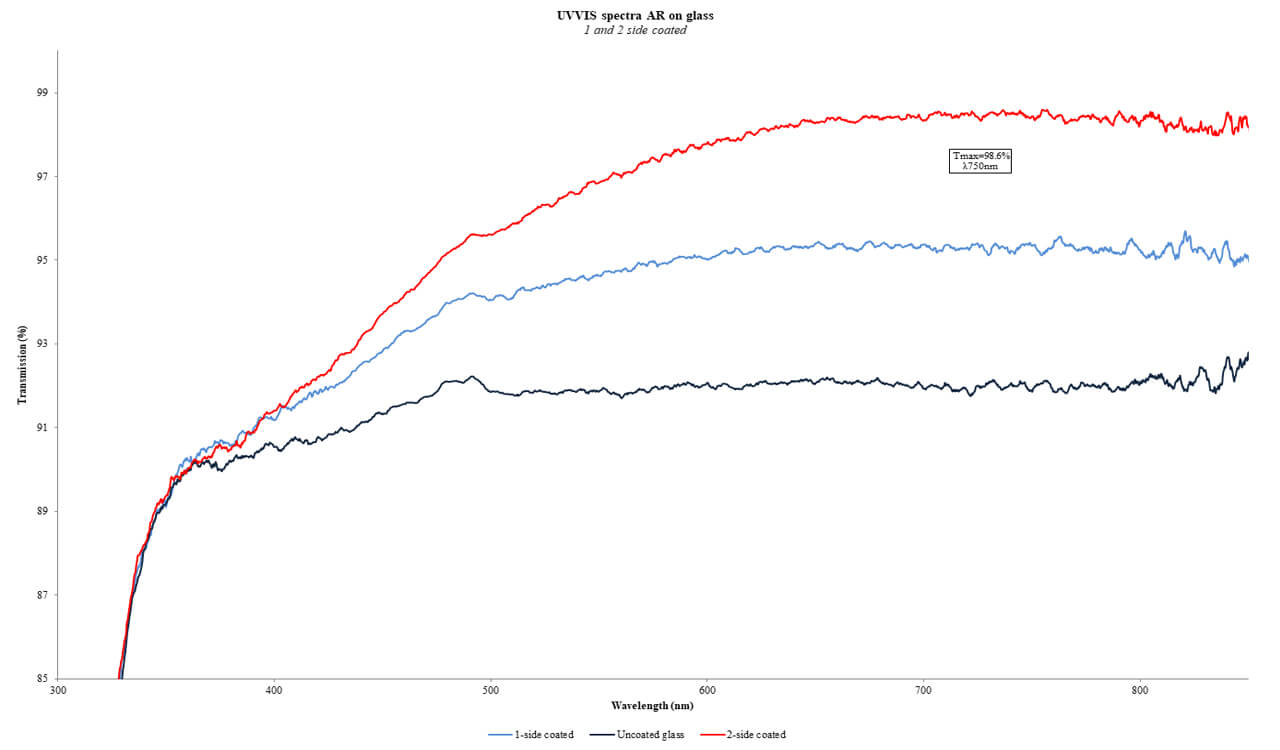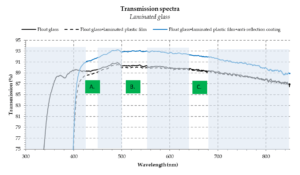Agricultural greenhouses – Anti reflection
Kriya’s 1-pot Anti Reflection (AR) coating is an effective AR coating for glass which is a ready to use solvent based, thermal curable coating. It can be used without the need for changes in equipment and can be applied using standard wet deposition techniques such as roll coating and slot die, making it the economical choice over conventional AR coatings. The glass coater can determine the minimum reflection through fine tuning the wet layer deposition. The transmission can be increased up to an average of 2-3 % (400-700 nm) per side of a coated glass, depending on mechanical requirements.
For both existing as well as new greenhouses, Kriya Materials has developed an easy to apply film. The film increases the impact strength of the glass so that, in the event of a hail storm, less breakage occurs. When the glass does break the film prevents the glass from shattering protecting the crops from falling glass. The film is treated so that it filters the harmful UV light.
Standardly the film is coated with an antireflection coating resulting in up to 2.5% more light for plant growth. Upon request, an reduced dust settling functionality can be added to reduce dust settling in dry periods.
A: Most important blue light for vegetative growth (430-450 nm)
B: Green light for stomatal control, phototropism, photomorphogenic growth (500-550 nm)
C: Most important red light for stem growth, flowering and fruit production (640-680 nm)
Kriya Materials always develops custom formulations meeting the most stringent requirements of our customers. The result is a plug and play product designed for optimal performance at the lowest total system cost.
Since we work custom based, we love to hear more about your substrate of interest and envisioned functionalities.
Please contact us through submitting our intake form.
Coatings for other substrates can be requested @ Kriya Materials
Disclaimer; Performance may depend on specific subtrate of choice, and process conditions, for each customer a customer specific product is formulated.



